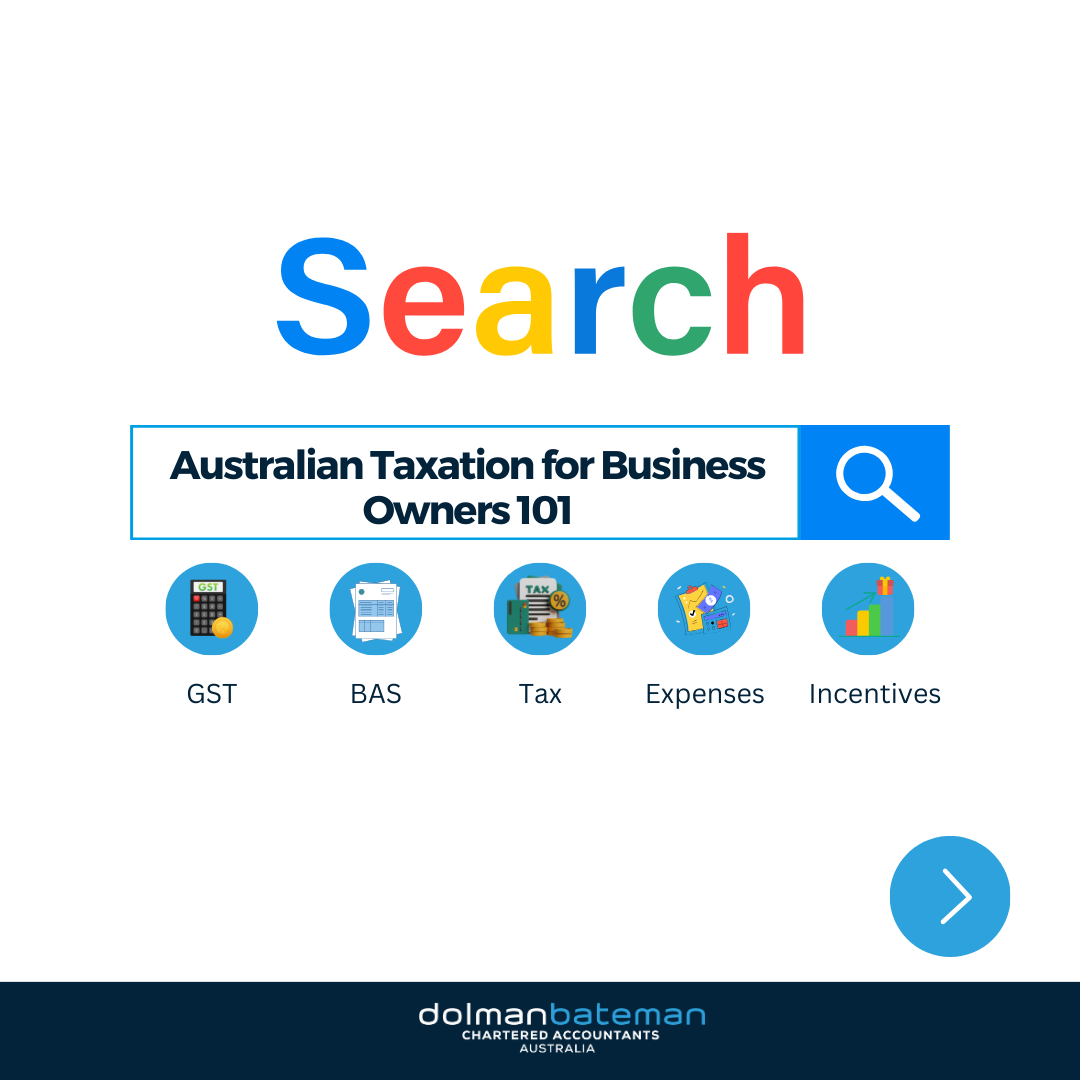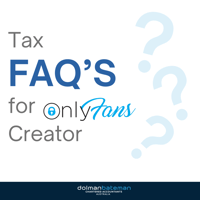Are you thinking of turning your online presence into a successful career? That’s awesome!
FAQs: Australian Tax 101 for Business Owners
 Taxation is an integral part of running a business in Australia, and it's natural for business owners to have questions and concerns about their tax obligations. The Australian tax system can be complex, but with the right knowledge and guidance, you can navigate it successfully.
Taxation is an integral part of running a business in Australia, and it's natural for business owners to have questions and concerns about their tax obligations. The Australian tax system can be complex, but with the right knowledge and guidance, you can navigate it successfully.
What is the Goods and Services Tax (GST), and do I need to register for it?
The Goods and Services Tax (GST) is a broad-based tax of 10% on most goods, services, and other items sold or consumed in Australia. Businesses with an annual turnover of $75,000 or more (or $150,000 or more for non-profit organizations) are required to register for GST. Voluntary registration is also an option for businesses with a lower turnover. Registering for GST allows you to claim input tax credits for the GST you pay on business expenses.
What are Business Activity Statements (BAS), and how often do I need to lodge them?
Business Activity Statements (BAS) are forms that businesses use to report and pay their GST, as well as other taxes like PAYG withholding and PAYG income tax installment. The frequency of lodgment depends on your business turnover:
Quarterly: For businesses with a turnover under $20 million.
Monthly: For businesses with a turnover over $20 million.
Annual: For some small businesses with a turnover of less than $75,000.
How do I calculate and pay my income tax as a business owner?
Business owners can choose between two methods for calculating and paying income tax in Australia: the pay-as-you-go (PAYG) installment system and the annual income tax return. Under the PAYG system, you make regular payments throughout the year based on your expected annual income. The annual income tax return reconciles your actual income and expenses for the year, with any overpayments refunded or underpayments settled.
What records and documentation do I need to keep for tax purposes?
Maintaining accurate records is crucial for fulfilling your tax obligations. You should keep records of all income, expenses, and transactions related to your business. This includes invoices, receipts, bank statements, and financial statements. It's also advisable to retain records for at least five years, as the Australian Taxation Office (ATO) may audit your business during this period.
How can I reduce the risk of a tax audit?
To reduce the risk of a tax audit, it's essential to ensure your financial records are accurate and up-to-date. Consider seeking professional advice from an accountant or tax consultant to ensure compliance with tax laws. Being proactive about your tax obligations, such as paying taxes on time and lodging accurate BAS statements, can also help minimise the likelihood of an audit.
Can I claim home office expenses as a business deduction?
If you operate your business from a home office, you may be eligible to claim a portion of your home office expenses as a tax deduction. This includes expenses related to utilities, internet, phone, and depreciation of office equipment. However, these deductions are subject to strict eligibility criteria, so it's important to seek professional advice to ensure compliance.
Are there any tax incentives or deductions available for small businesses?
Yes, there are several tax incentives and deductions available to small businesses in Australia. The Small Business Entity (SBE) concessions provide benefits such as simplified depreciation rules, immediate deductions for assets subject to the current threshold, and a lower company tax rate for eligible businesses. Additionally, the instant asset write-off allows businesses to deduct the full cost of eligible assets in the year they are purchased, subject to cost limits. It's essential to connect with a seasoned professional who can offer insights into uncovering potential tax incentives and deductions that can be advantageous for your business.
Navigating the Australian tax system can be challenging for business owners, but with the right knowledge and support, it becomes more manageable. It's essential to stay informed about your tax obligations, seek professional guidance, and maintain accurate records. By addressing these common questions and staying proactive, you can ensure that your business remains compliant with Australian tax laws and maximises its financial efficiency. Remember that tax laws and regulations can change, so staying up-to-date is key to success in managing your business's taxes. This blog has been prepared for the purposes of general information and guidance only. It should not be used for specific advice or used for formulating decisions under any circumstances. If you would like specific advice about your own personal circumstances, please feel free to contact us on 02 9411 5422. We can help make sure the right method is used to give you the maximum possible tax deduction associated with any of these methods.
This blog has been prepared for the purposes of general information and guidance only. It should not be used for specific advice or used for formulating decisions under any circumstances. If you would like specific advice about your own personal circumstances, please feel free to contact us on 02 9411 5422. We can help make sure the right method is used to give you the maximum possible tax deduction associated with any of these methods.



